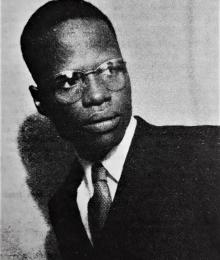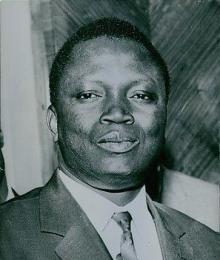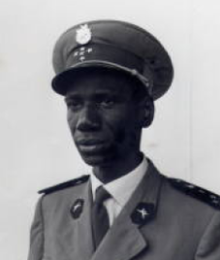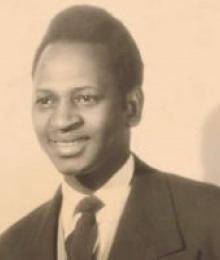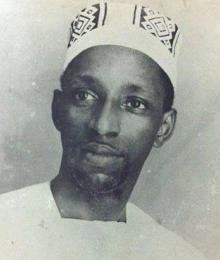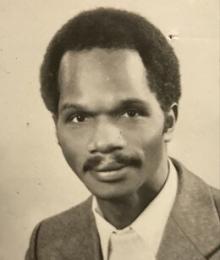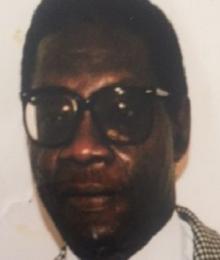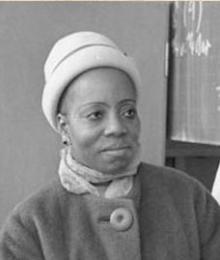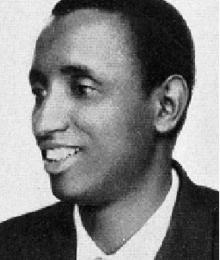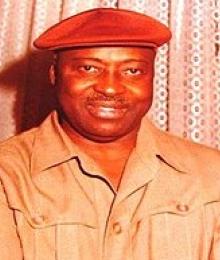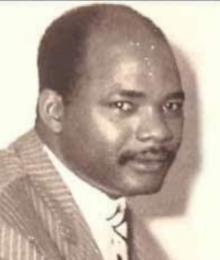
Kaman Diaby was an iconic figure in Guinea's military and political history. Born in the early 1930s, he became the first aviator from French-speaking Africa, having trained at the French Air Force Academy. After a distinguished career in the French army, including service in Indochina and Algeria, Diaby returned to Guinea in 1959 to contribute to his country's independence. He played a crucial role in building the Guinean army, becoming Deputy Chief of Staff.
Tragically, his promising career was abruptly ended in 1969 when he was accused of plotting against Sékou Touré's regime, then sentenced to death and executed. His journey illustrates both the aspirations and tragedies of post-independence Guinea, making him a major historical figure whose rehabilitation only occurred in 2021.
Introduction
Kaman Diaby, born in the early 1930s in French Guinea, was a prominent figure in Guinea's military and political history. As the first aviator from French-speaking Africa, he had a brilliant military career before playing a crucial role in his country's struggle for independence. His tragic fate, marked by his arrest and execution in 1969, illustrates the turmoil of the young Guinean nation under Sékou Touré's regime.
Childhood and Education
Born into a modest family, Kaman Diaby was adopted by Fodé Bokar Maréga, who provided him with a solid primary education. This foundation allowed him to continue his studies in Bamako as a child soldier, before joining the French Air Force Academy. This exceptional journey made him one of the few Africans to integrate into this prestigious French military institution.
Military Career
Kaman Diaby's training at the Air Force Academy was highly successful. In 1952 and 1953, he had the honor of marching down the Champs-Élysées during the July 14th celebrations, just behind the students from the École Polytechnique and Saint-Cyr. This distinction testified to the excellence of his results and his successful integration into the French military elite.
After his training, Kaman Diaby served in the French army, notably participating in the Indochina and Algeria wars. These combat experiences shaped his character and provided him with valuable military expertise. In 1959, having reached the rank of captain, Diaby decided to resign from the French army to return to Guinea and put his skills at the service of his native country.
Fight for Guinea's Independence
Upon returning to Guinea in 1959, Kaman Diaby was quickly integrated into the highest spheres of power. He was first appointed to serve under the President of the Republic, Ahmed Sékou Touré, before being promoted to Deputy Chief of Staff of the army. In this role, he served under Colonel Kéita Noumandian, Chief of General Staff.
Alongside Colonel Kéita Noumandian and Commander Barry Siradiou, Kaman Diaby was one of the main architects in building the Guinean army. His experience in the French army and his elite training were valuable assets in structuring and professionalizing the armed forces of the young independent state.
Arrest and Death
In 1969, Sékou Touré's increasingly paranoid regime orchestrated what was called the "military plot" or "Kaman – Fodéba plot". This machination aimed to eliminate influential personalities perceived as potential threats to the established power.
On March 22, 1969, Sékou Touré publicly accused Kaman Diaby of being one of the main instigators of the plot. The president claimed that Diaby had received instructions from Paris as early as 1958 to infiltrate the Guinean army and serve French interests. These unfounded accusations served as a pretext for his arrest.
On May 14, 1969, following a hasty trial before a revolutionary tribunal, Kaman Diaby was sentenced to death alongside twelve other accused. His execution, probably by firing squad, took place in the days or weeks that followed, at Camp Boiro, the infamous political prison of Sékou Touré's regime.
Tribute
For over 50 years, the burial place of Kaman Diaby remained unknown. It was not until October 15, 2021, that the National Committee of the Rally for Development (CNRD) paid an official tribute to Colonel Diaby, finally revealing the location where he had been buried after his execution. This belated recognition was hailed by the Association of Victims of Camp Boiro (AVCB) as an important step towards acknowledging the crimes of Sékou Touré's regime and rehabilitating its victims.
Private Life
Little information is available about Kaman Diaby's private life. Like many officers of his generation, he probably had to balance a demanding military career with his family responsibilities. The discretion surrounding his personal life may reflect a desire to protect his loved ones in an unstable political context.
Conclusion
Kaman Diaby embodies both the hopes and tragedies of post-independence Guinea. As the first aviator from French-speaking Africa, he put his exceptional military skills at the service of his country, contributing significantly to the construction of the Guinean army. His tragic fate, falling victim to Sékou Touré's political purges, illustrates the authoritarian excesses that marked the first decades of Guinean independence.
The belated rehabilitation of Kaman Diaby in 2021 is part of a broader process of recognizing past crimes and national reconciliation. His exceptional journey, from the French Air Force Academy to the highest ranks of the Guinean army, passing through the battlefields of Indochina and Algeria, makes him a major historical figure in modern Guinea.
Kaman Diaby's story reminds us of the importance of preserving the memory of victims of political repression and learning from the past to build a more just and democratic future. His commitment to his country, despite the risks involved, remains an example of patriotism and courage for future generations.












